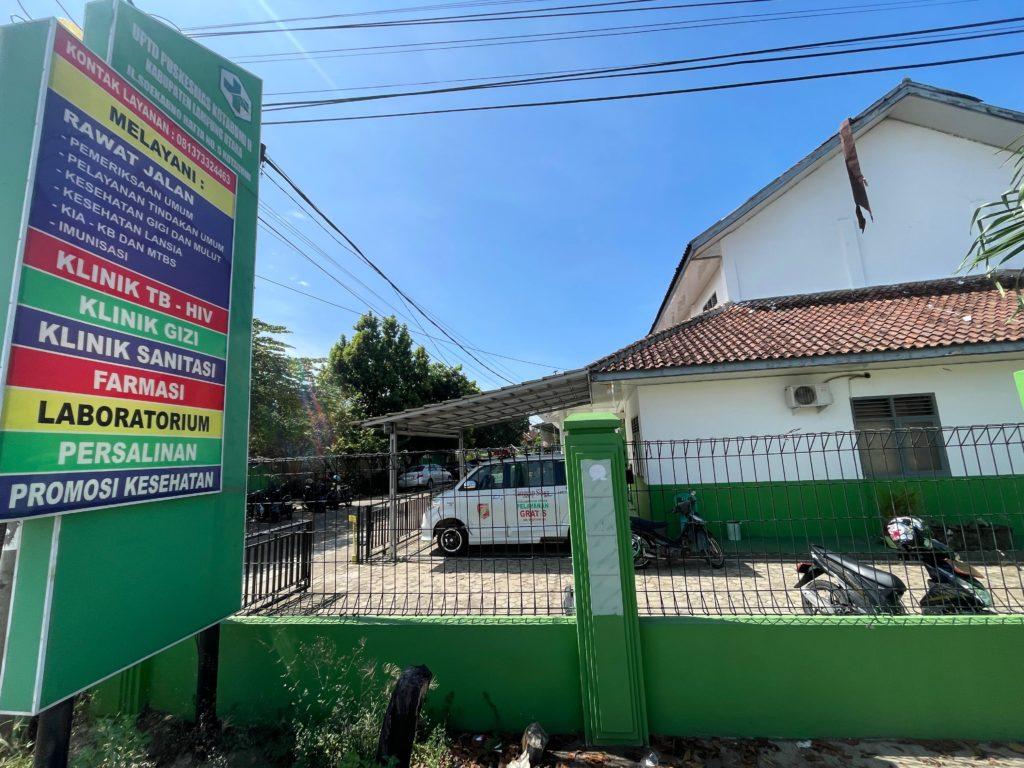
Indonesia has been making efforts to achieve the UNAIDS 95-95-95 targets for HIV testing, treatment, and viral load suppression throughout its territory. The national HIV elimination programme has been implemented in all 38 provinces of the country, including 13000 islands that face unique geographical, cultural, and socioeconomic challenges. By the end of 2022, 81% of people living with HIV in Indonesia knew their HIV status, 42% of those who knew their HIV status were receiving antiretroviral treatment, and 19% of those receiving treatment were virally suppressed.
In 2015, Lampung province, with a population of 9 million and an HIV prevalence rate of 0.4%, had two healthcare services providing HIV treatment, located in the capital city of Bandar Lampung. This was insufficient to identify and manage the estimated 36000 people living with HIV (PLHIV) in the population. Expanding and bringing HIV care services closer to affected populations could improve access to HIV diagnosis and treatment, alleviate workload burden on existing services, and reduce out-of-pocket expenses for patients.
The process of sustainably increasing the number of HIV care centres in Lampung province began in 2017 with Lampung Provincial Hospital and Lampung Provincial Health Office working together to develop a comprehensive HIV care service. Lampung Provincial Hospital established as a centre of excellence for HIV care, serving as both a medical service provider and a training ground for health workers. Members of the hospital’s HIV care team received training facilitated by the health office in collaboration with the Ministry of Health (MoH). The training encompassed both in-class lessons and hands-on experience. This approach enabled team members to understand seemingly complex cases and increase their confidence. After completing training, the hospital management ensured the maintenance of the team by issuing a regulation anchoring the multidisciplinary team to stay in service, while the health office facilitated their work by providing uninterrupted supplies of ARV medication and other necessary resources as mandated by the MoH. To maintain and improve the quality of HIV care services across the province, simultaneous training of peripheral healthcare services took place. This involved collaboration with local NGOs specializing in peer support for PLHIV and outreach programmes. Additionally, province-wide HIV care support and treatment (CST) trainings were conducted for community health services and municipal hospitals to establish their own HIV care teams. Local NGOs played a crucial role in identifying cases among key populations and providing support to newly diagnosed HIV patients.
As of September 2022, there were 201 HIV care centres located across 15 municipalities in Lampung province, compared with two centres in 2015. This expansion resulted in a greater annual number of patients being diagnosed with HIV (increasing from 241 in 2015 to 730 in 2022), enrolled on ART and adhering to their treatment plans. Furthermore, the expansion effectively distributed the workload from the provincial hospital to peripheral HIV care centres, leading to a reduction in the number of new cases and cases lost-to-follow-up at the provincial hospital.
Challenges to establishing and maintaining new HIV care facilities included lack of funding from the local government, high stigma and discrimination towards PLHIV, and high turnover of team members without adequate replacement, especially in peripheral HIV services. To address these challenges, social media platforms, including WhatsApp, have been used to encourage newly recruited HIV care team members to share concerns, doubts, and obstacles encountered while referring complicated cases, such as advanced stages of HIV infection and PLHIV with obstetric emergencies. This two-way communication approach helped reduce stigma associated with handling HIV cases beyond perceived capability and boosted team members confidence to work within their capacity, preventing them from feeling isolated or unsupported.
High turnover among HIV care team members is an inevitable threat to team sustainability. The main idea of decentralizing health training in this context was to establish provincial hospitals as accessible learning grounds for every team. Previously, teams were required to travel to the national capital city, Jakarta, for HIV care training but now they only needed to travel to the provincial capital. Moreover, accessing this learning site did not depend on external funding since the teams were only required to provide accommodation within the province. This made the training more sustainable and feasible for teams involved.
Establishing a dedicated HIV care team and centre of excellence in the provincial referral hospital is a crucial step to sustainably expand and improve the quality of HIV services. Having a trained and committed HIV team in the provincial hospital not only enhanced the quality of client care and electronic monthly reports but also facilitated the expansion of HIV CST training to peripheral health services. Strong clinical leadership from the Provincial Hospital was the cornerstone of these advancements, driving the strategic vision, fostering collaboration across stakeholders, and ensuring the sustainability and quality of HIV care services throughout the province.
Proficiat dr.Yusuf and the great team from Lampung provincial….